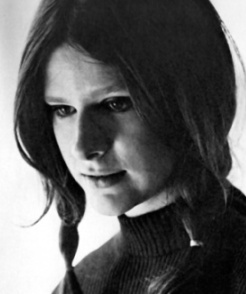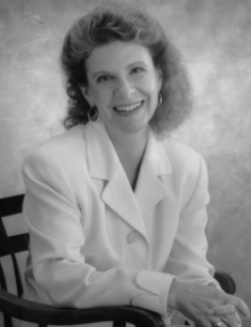ABIGAIL FOERSTNER
Then:
Medill senior, 1970-71 Northwestern Yearbook editor.

Now:
BSJ, MSJ Northwestern; full-time faculty at Medill, teaching science and environmental journalism; author of James Van Allen: The First Eight Billion Miles and Picturing Utopia. Abigail's 34-year career as a journalist began when she initiated science and environmental coverage as a staff reporter for the Suburban Trib sections of the Chicago Tribune; she has received awards for investigative and environmental reporting.

Memories of 1970:
"I remember the time - it was a scary time. Lake Erie was dying, Lake Michigan had PCBs, and the Cuyahoga River caught fire (June 22, 1969)."
The Cuyahoga River fire helped bring the problem of water pollution to the forefront of news, eventually leading to environmental policy creation and the beginnings of the Environmental Protection Agency. Abigail wanted to be a science reporter, and followed environmental news as well as research at Fermilab and early strides in alternative energy.
"The environmental movement was happening at the same time as the civil rights movement, the women's movement, the anti-war movement - they all gave energy to each other. Lifestyles changed a lot on campus: people were living in communities, baking bread, making yogurt, having plants in their dorm rooms. There was a sense of respecting each other and cherishing the earth and people."
Career direction:
Abigail was in the audience at the Project Survival Teach-Out. At the time she was a senior journalism student, editor of the yearbook and involved in the environmental movement. When I asked her how all this affected her life, she replied, "It had a huge effect on me - it completely directed my career."
"In the summer of '71, before I started grad school, I went to work for environmental trade publications - it was a way I could get involved. They invited me back after Grad school to work for them full time. Technology and research were becoming more and more important - water filtering, solar energy, things we're doing today."
During Abigail's graduate program at Medill, she took part in the Washington, D.C program, where she had the opportunity to interview people in Washington working in the early environmental movement. She came back to Chicago after completing her MSJ, and took a job with the trade publications, as managing editor of a new magazine called, "International Pollution Control."
Eventually she took a job with the Chicago Tribune, working in their new Suburban Tribune papers - these included 13 separate sections covering different suburbs. They were looking for reporters to cover the environment, energy and science.
"There was a lot of pollution in the suburbs - a lot of flooding in DuPage because they were building on the floodplain, cementing over wetlands. There was no planning or managing of open space. I was out there working in hipboots. People would take you into their homes to show you the flooding."
"There was so much going on - in 1973 we had the Arab oil embargo - that started people realizing that we had big energy issues. It was our first chance to get it right. There were initiatives in solar, battery research at Argonne - people were working on concepts for hybrid cars. That was our chance. We could have been producing and exporting technologies, helping the economy and the environment."
And today....?
"In the early 70's these movements were so empowering - we felt we could change the world."
We spoke of lost chances, of how we're still fighting so many of the same issues, of the way politics and events have helped or hindered. An inspiring optimist, Abigail reminds us, "But we were able to save little bits of the earth - the lakes came back, Waukegan Harbor got cleaned up - we made strides with air pollution."
"For me, the environmental movement was not only something to write about - it was something to live."
